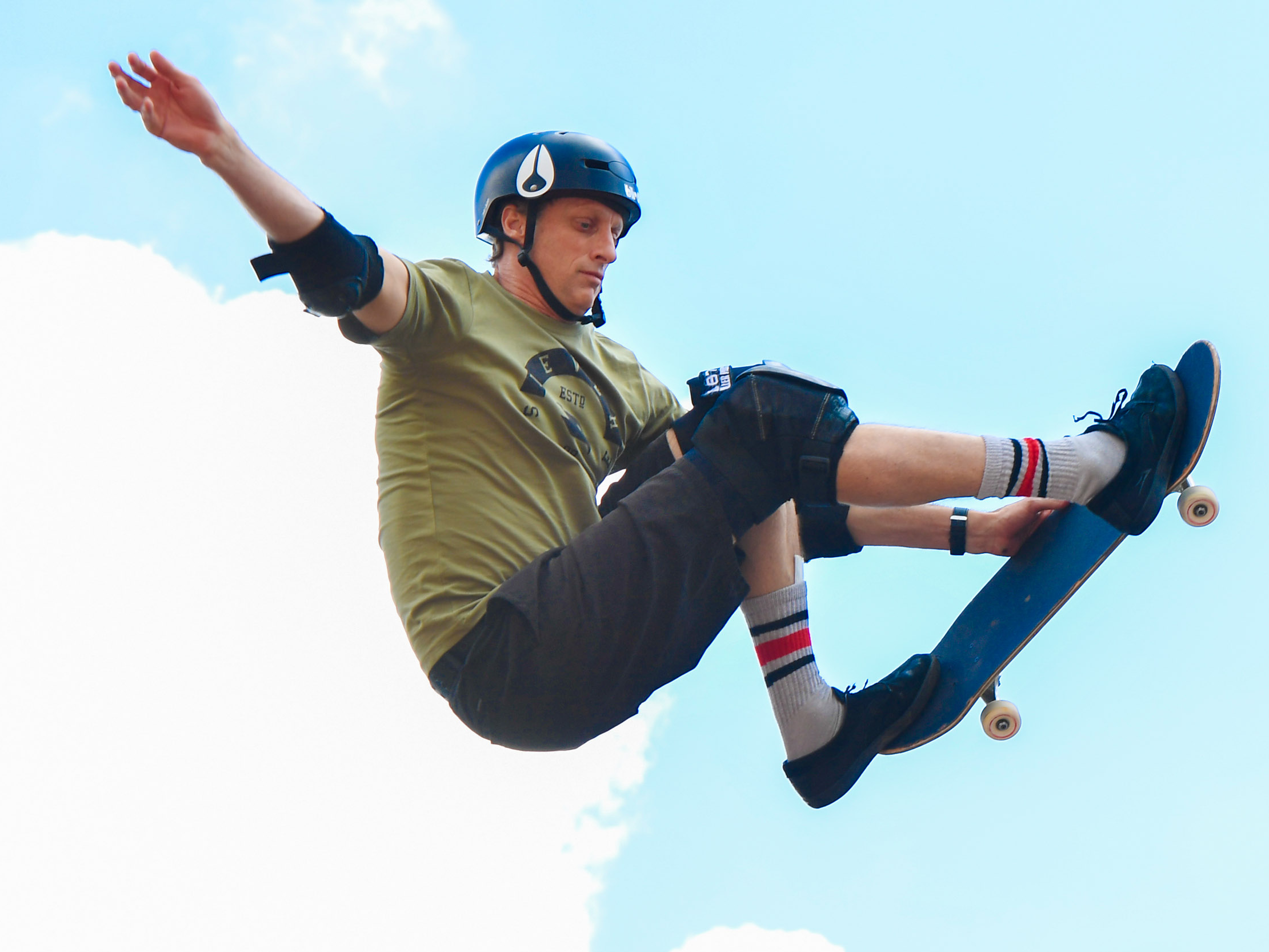- Tony Hawk is undoubtedly the most famous skateboarder on the planet. His claim to fame is being the first skateboarder to land a 900, or a 900-degree aerial spin, in 1999.
- He got his start in the 1980s as a 12-year-old. His immediate success with sponsors allowed him to buy a house at age 17.
- As skateboarding’s popularity waned in the 1990s, Hawk struggled, at one point only spending $5 a day on Taco Bell.
- But he positioned himself well for the resurgence of the sport, ultimately building one of the most influential skateboarding brands, Birdhouse, and striking a lucrative deal with video game company Activision.
- Hawk has poured his millions into his own philanthropic efforts and invested in a number of companies, like Blue Bottle Coffee and Nest.
- Estimates put Hawk’s net worth above $100 million.
- Representatives for Hawk and his production company, 900 Films, didn’t immediately respond to a request for comment from Business Insider.
- Visit Business Insider’s homepage for more stories.
Tony Hawk is a legendary skateboarder — and now businessman and philanthropist — known for being the first ever to land a highly technical 900-degree aerial spin.
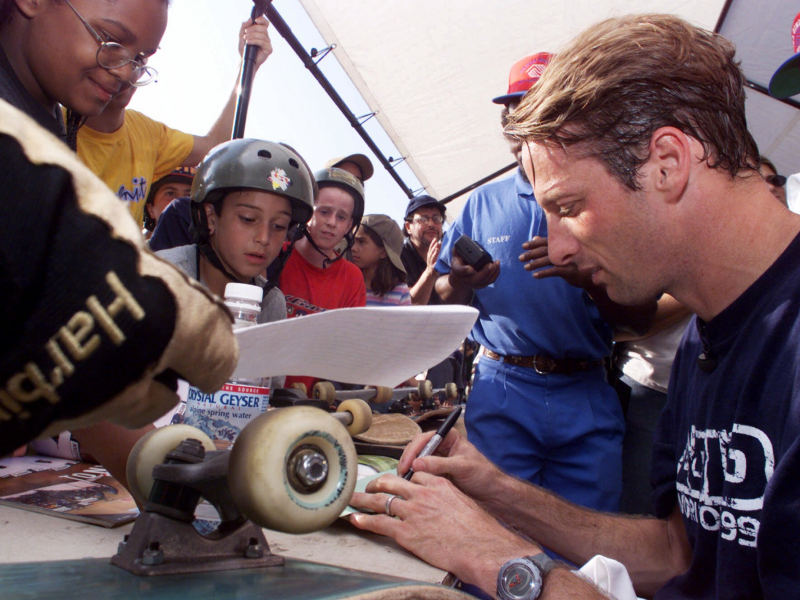
Hawk accomplished the feat in 1999 at the X Games. It took him 11 tries. “This is the best day of my life,” he told the crowd.
At the time, he was 31 years old. It was his last year of professional competition – but his wealth only grew from there. He is estimated to have a net worth above $100 million.
Hawk started skateboarding professionally at age 14 and was immediately successful. By age 17, he bought his first home.

Hawk was winning amateur skateboarding competitions at age 12, and started skateboarding professionally at age 14. By the time he was 16, he was touted by many as the best competitive skateboarder in the world.
As a 17-year-old high school senior, his “annual income surpassed that of his teachers,” according to his website. This was mostly due to his primary sponsorship with Powell-Peralta skateboards and his participation in the Bones Brigade skateboard team. He was even doing commercials for brands like Mountain Dew.
"We were making hundreds of thousands of dollars a year as teenagers and traveling the world," Hawk told CNBC in 2019.
"When I started making money ... I thought I'd continue to do so forever," Hawk said earlier this year. "My dad knew better and encouraged me to save and invest in a house. So I owned my own home when I was only 17 years old."
In the 1990s, when interest in skateboarding waned, so did Hawk's income.
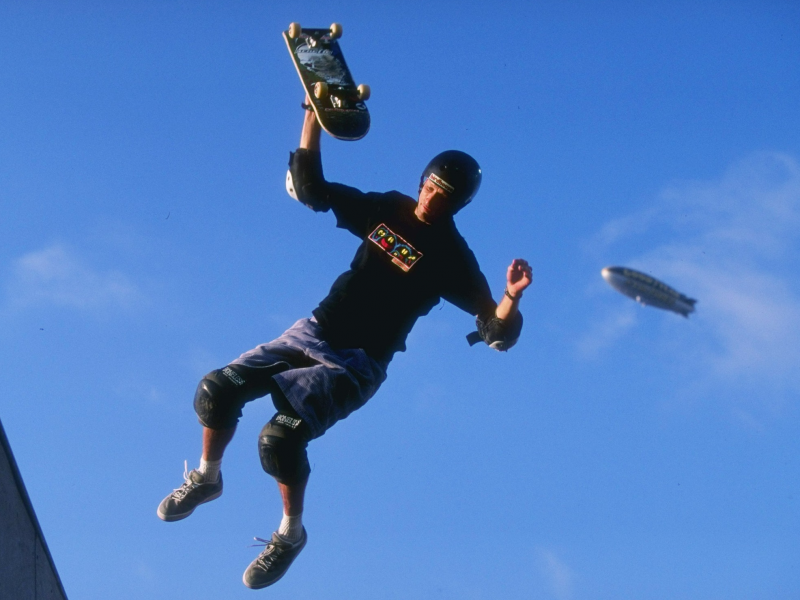
As skateboarding developed a negative reputation in the early 1990s, Hawk started to see the impact on his own wallet.
"My income was literally dropping in half every month," Hawk told CNBC in 2019. "And people just weren't buying skate stuff, nor Tony Hawk stuff."
He took on skate demo jobs that provided about $100 a day. At one point, he was surviving on a $5-a-day Taco Bell allowance.
He stayed focused. He refinanced the house and founded Birdhouse, a skateboard team and company, with fellow skater Per Welinder in 1992, preparing for skateboarding to make a comeback.
As skateboarding regained popularity with the creation of the X Games, Hawk's Birdhouse became a mainstay brand.
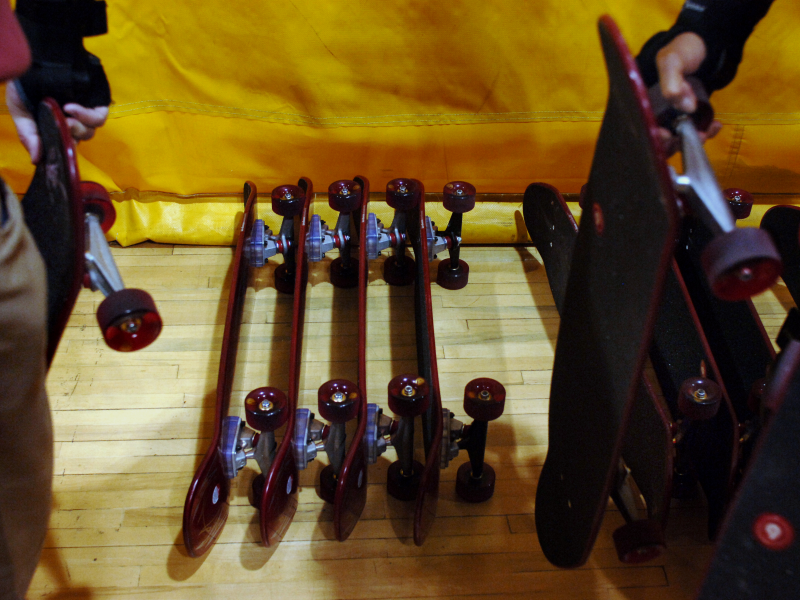
The X Games were founded in 1995. The event poured new life into the skateboarding industry.
Birdhouse then became more than a skate team - it started producing boards and accessories around 1993 or 1994. Hawk told Rolling Stone that, at the time, he was "just calling shops and saying ... 'You wanna buy a board or two?'"
Birdhouse saw a sales spike after exposure from the X Games. The company, according to Sports Illustrated, was doing nearly $25 million a year in sales around 2002.
Hawk also created his own clothing line in 1998, which he then sold within two years to Quiksilver for an undisclosed amount. Hawk's clothing sales in 1999, before he sold the line, hovered around $1 million.
Hawk reaped a number of endorsements as skateboarding hit mainstream popularity.
In the early 2000s, those endorsements included ESPN, Sony, McDonalds, Mountain Dew, Jeep, and Bagel Bites, as evidenced by the above commercial.
Hawk's 2002 Bagel Bites endorsement earned him a bit of backlash at the time and accusations of "selling out," he told AdAge in 2019. He teamed up with Bagel Bites again for an ad campaign last year.
While the values of Hawk's individual endorsements are largely unknown, a 2008 USA Today profile asserted Hawk made "millions of dollars" from his corporate sponsors and marketing deals.
Hawk made a deal with Activision to create the Tony Hawk Pro Skater video game series in 1999, the same year he landed the 900.
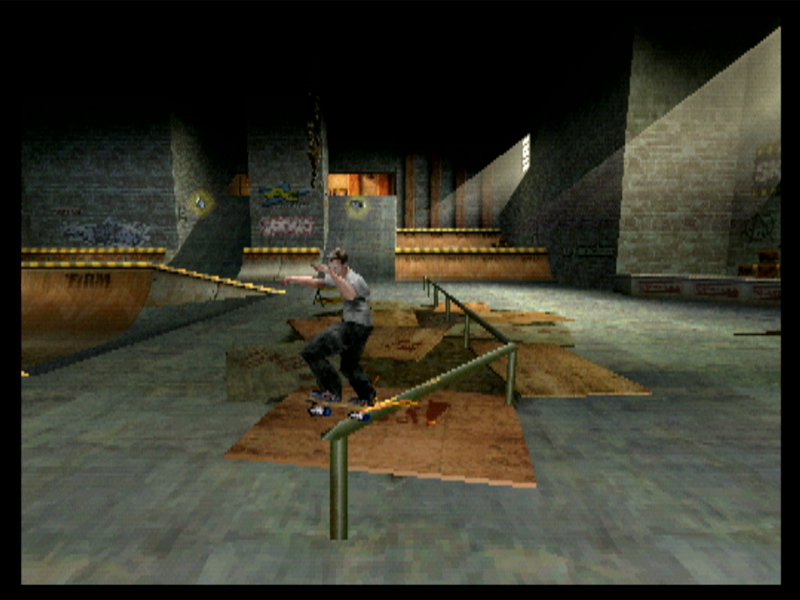
Hawk told CNBC was offered a flat fee of $500,000 to put his name on the Activision game. He turned the deal down, and instead asked for royalties, which was a gamble.
It paid off. The franchise has surpassed an estimated $1.4 billion in worldwide sales as of 2019, according to Hawk's website.
The first editions of the game earned Hawk royalties of more than $6 million per year in the early 2000s.
Now, the beloved first edition of the game is getting a long-awaited remaster.
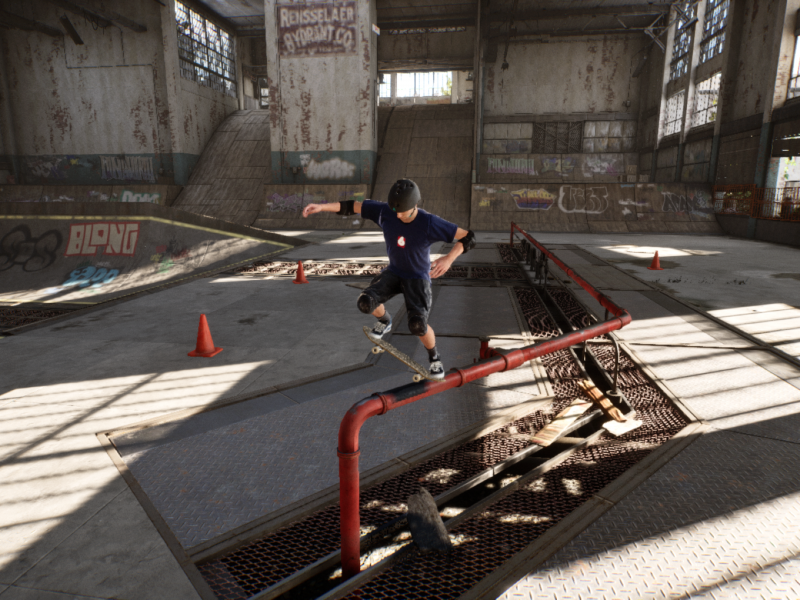
It was just announced that the classic skateboarding games "Tony Hawk's Pro Skater" and "Tony Hawk's Pro Skater 2" are getting completely remastered and bundled into a new game that's coming this September for Xbox One, PlayStation 4, and PC.
Hawk's royalties deal almost assuredly means he'll see major kickbacks following the re-release.
Hawk has made multiple appearances as himself in television shows like "The Simpsons" and "Who Wants to be a Millionaire." The latter ultimately led to him creating the Tony Hawk Foundation.

In 2017, Hawk told Business Insider's Shana Lebowitz that one of the proudest moments of his career was a cameo on "The Simpsons" in 2003. He played himself in an episode where Homer challenges him to a skateboard match. "It was a tipping point of skateboarding being accepted into the mainstream in a lot of ways," he said.
Although he has a long list of TV and film appearances, it was a separate early 2000s TV appearance that got Hawk to start a charity.
Hawk won $125,000 on a celebrity edition of "Who Wants to be a Millionaire" in 2002. He used the winnings to create the Tony Hawk Foundation, which funds the creation of safe skate parks across the country. The foundation has gone on to award over $10 million to more than 600 public skate park projects in low-income areas in all 50 states.
Hawk has made a number of interesting investments across industries, including in a coffee chain and in tech companies like DocuSign.
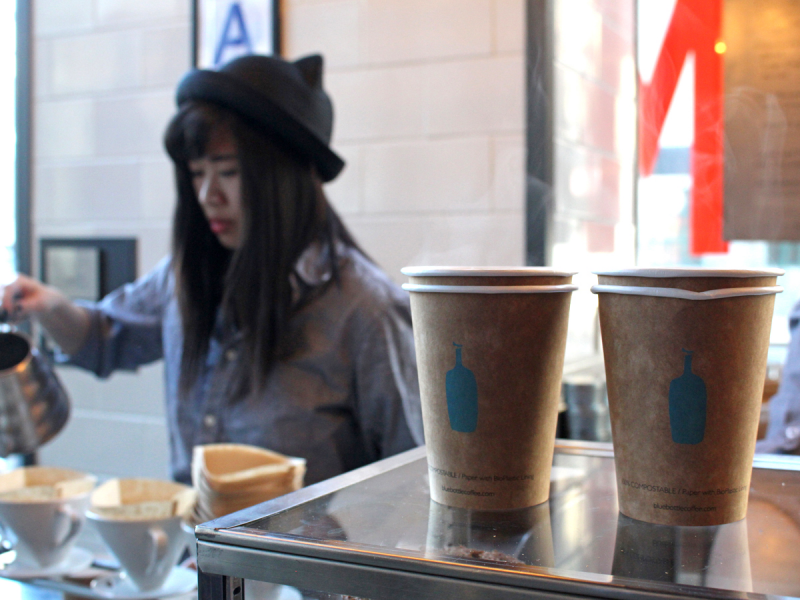
Hawk founded a video production company called 900 Films in 1999, named for his famous move, originally geared toward filming skateboarding.
Now, the San Diego-based company produces action sports content, like the popular YouTube account RIDE Channel, as well as advertisements for companies like Kraft, Sony, and Adobe.
Hawk was an early investor in California's Blue Bottle Coffee chain, which was sold to Nestle in 2017 for $500 million. He, and other early investors including Bono and Jared Leto, likely received a nice payout.
Hawk was also an early investor in Nest, which was acquired by Google for $3.2 billion in 2014. He has also invested in a San Diego brewery called the Black Plague. He told Reuters in 2017 that he has also invested in "DocuSign and a few other tech companies," because he like startups and "being on the ground floor of stuff."
These days, Hawk's family is based in San Diego.
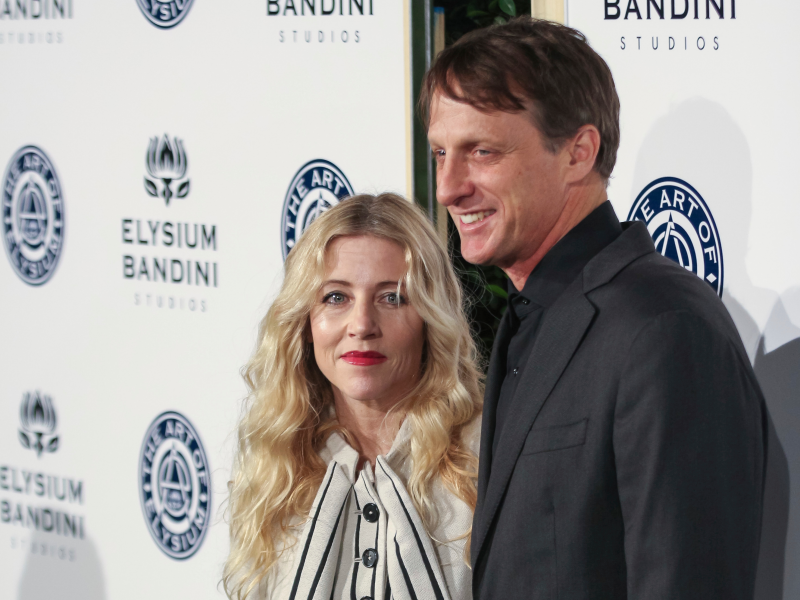
His home base is in Encinitas, California. The private home is equipped with an infinity pool that overlooks San Diego and its own skate park, according to a 2015 GQ profile. It's filled with art Hawk has collected over the years - including a framed image of his "Simpsons" cameo that is signed by the cast.
Hawk also reportedly purchased a three-unit apartment building in Detroit in 2016 for an undisclosed price, according to the Detroit Free Press. (Hawk's wife, Cathy Goodman, is from the Detroit area.) They reportedly planned to rent two of the units and keep another available for Hawk family visits to the area, the Free Press wrote at the time.
http://instagr.am/p/B6i2UsCpe4L
Hawk, who has been married four times, has four children and two stepchildren from his marriages.
His oldest son, Riley, followed in Hawk's footsteps and became a professional skateboarder. At one point, he even skated for Hawk's Birdhouse team. Riley is also a musician.
Hawk reportedly drives a Tesla Model S.
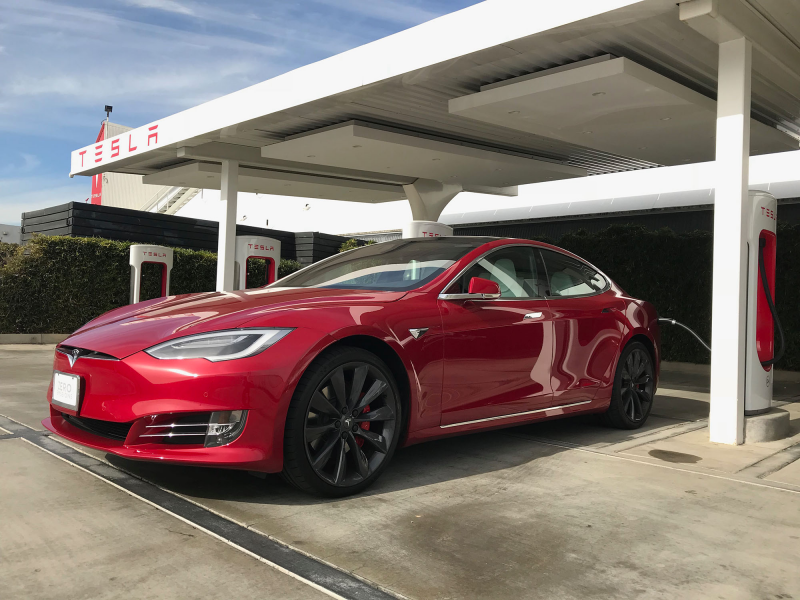
According to a 2018 Sports Illustrated profile, Hawk shuttles his family around in a Tesla Model S with an all-white interior. The car has a base price of $74,490.
Hawk told MotorTrend in 2010 that his daily driving car at the time was Jeep Cherokee. He also mentioned that he had a manual 1964 Chevy Corvette Sting Ray, which auction for about $50,000.
Although Hawk isn't as prominent a public figure as he was at the peak of skateboarding's popularity, he's good natured about it.
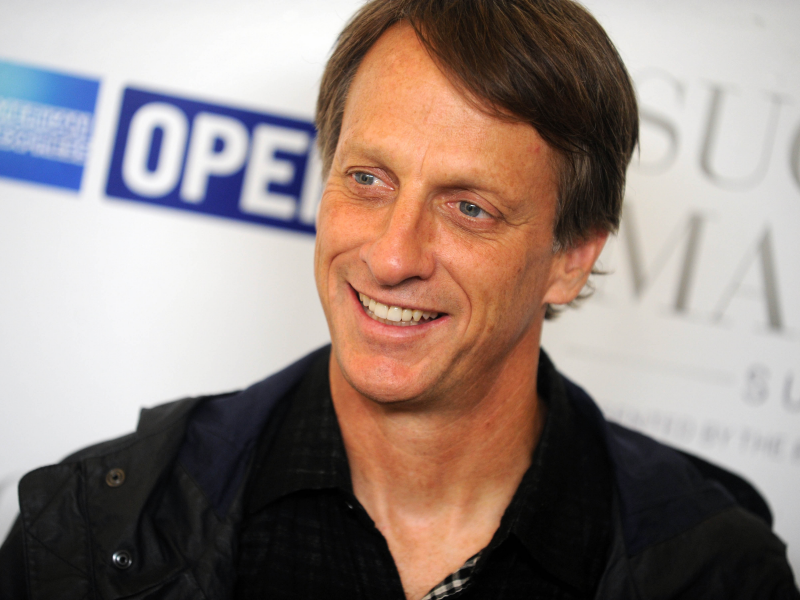
Hawk frequently takes to Twitter to joke about being mistaken for other celebrities, particularly in airports.
TSA agent (checking my ID): "Hawk, like that skateboarder Tony Hawk!"
Me: exactly
Her: "Cool, I wonder what he's up to these days"
Me: this— Tony Hawk (@tonyhawk) March 21, 2017
He previously told Business Insider's Meredith Cash that he is often confused for legendary NFL quarterback Tom Brady. He assumes this particular confusion happens because "they know there's some sports star whose name starts with a T."
"I get recognized all the time, to the point where it's kind of strange. I never imagined I'd ever be famous from skateboarding," he told Cash. "But it's cool!"

